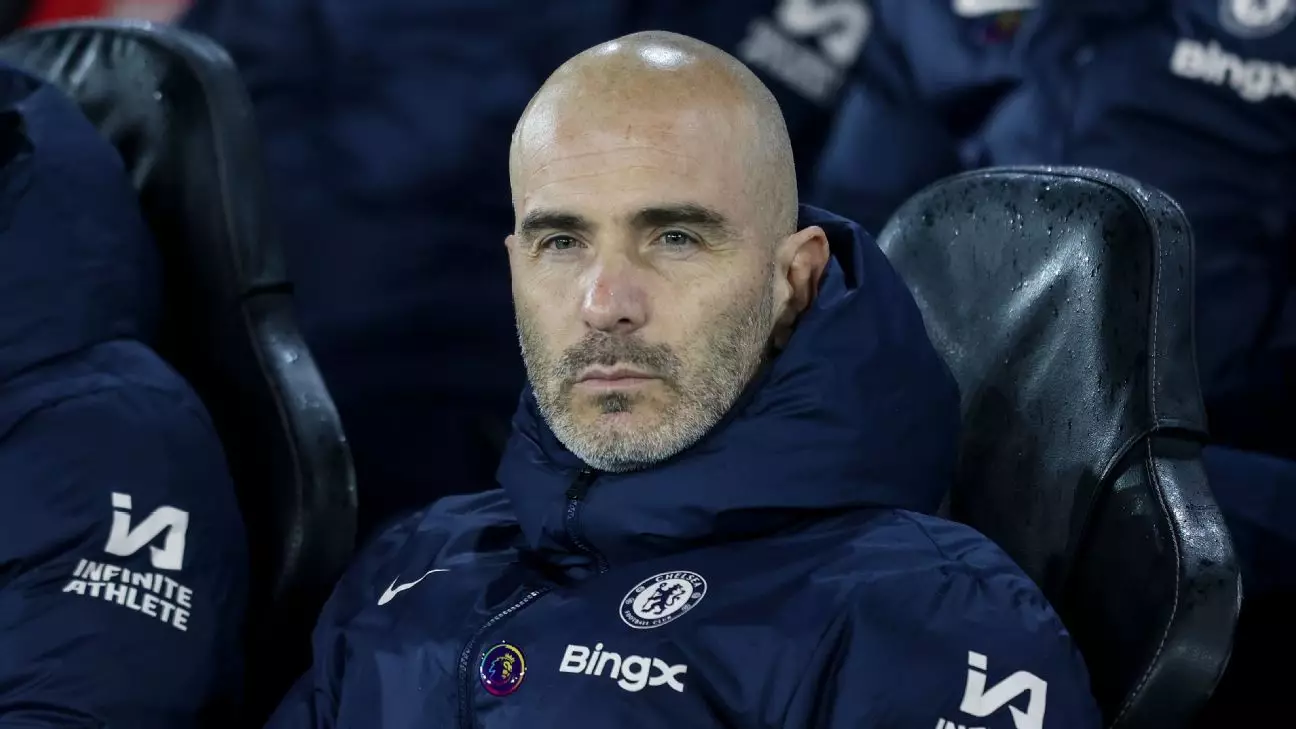The current landscape at Chelsea F.C. is tumultuous, with the team’s recent performances causing unease among fans. Under the management of Enzo Maresca, the club has struggled, securing merely three victories out of the last twelve matches in all competitions. This lack of consistency has not only hindered their pursuit of the top places in the Premier League but has also led to a significant drop to sixth in the standings. The urgency for improvement was palpable as Chelsea prepared to travel to Aston Villa, where the stakes were high for a club that has historically been a front-runner in English football.
As Chelsea approaches a critical match against Aston Villa, dissent among the supporters has begun to surface. A faction of fans is mobilizing to protest against the club’s ownership, namely Todd Boehly and Clearlake Capital, prior to the home game against Southampton. The exact scale and impact of this protest remain uncertain, yet it underscores the underlying tensions between the fandom and the management. Historically, protests like these reflect deeper frustrations that often stem from disappointing results and perceived mismanagement, which can lead to larger implications for team morale and performance.
In a display of leadership, Maresca has taken a firm stance against the rising dissent, urging fans to channel their energy positively. At a recent press conference, he emphasized the importance of unity, positing that the team’s success hinges significantly on fan support. “Winning all seven home games can secure top-four placement,” he proclaimed, showcasing a definitive focus on securing Champions League qualification. Maresca’s comments were not merely strategic; they were a heartfelt appeal rooted in the understanding that a supportive crowd can galvanize players, transforming their performance on the pitch.
By highlighting the crowd’s impact on recent victories, such as their comeback against West Ham, he aims to remind fans of the power they wield. This bond between players and supporters is crucial, especially in trying times where belief and encouragement can mitigate the psychological burdens of pressure and expectation.
Further bolstering Maresca’s cause, the club hierarchy voiced their unwavering support for his management. Director Jonathan Goldstein openly endorsed the Italian, declaring that Maresca would remain at the helm for the rest of the season. This public affirmation is critical in promoting stability within a club that has recently faced scrutiny over its direction. Maresca acknowledged this backing graciously, reinforcing that a strong relationship with club officials is essential for navigating this precarious juncture.
This solid foundation of trust can be crucial for transforming the team’s fortunes. Maresca’s understanding that consistent support from club management can uplift team morale reflects a profound understanding of the dynamics within football organizations. The acknowledgment of the challenges faced, compounded by injuries to key players, serves to reinforce the message that the club remains ambitious, despite recent shortfalls.
Despite the troubling results and injury woes that have plagued the squad, Maresca stands firm in his ambitions for Chelsea. He has articulated his vision clearly: to not merely survive the current situation but to strive for victory and reestablish the club firmly in the title race. The challenge remains multifaceted—balancing the emergence of younger talents while navigating injuries to established players like Noni Madueke and Nicolas Jackson.
Maresca’s unwavering ambition for Chelsea reflects a deeper ethos shared by the club. The consistent messaging surrounding ambition and resilience reveals a parallel focus on re-building and growth. It becomes vital for both the management and the fans to rally around this vision, fostering an environment ripe for success.
As Chelsea gears up for its next fixture, the need for unity and optimism among fans resonates as a clarion call. The challenges they face are visible, yet so too are the pathways to success. The onus now rests on the supporters to heed Maresca’s call for solidarity at a time when their club needs it most—a strong, unified front can amplify the impact of a good performance on the pitch.
With aspirations for a Champions League spot tangible yet precarious, Chelsea must find its footing amidst turmoil. The coming matches will not just be about points; they will encapsulate the spirit of the club’s revival—driven by collective hope, ambition, and the indomitable will to succeed.

